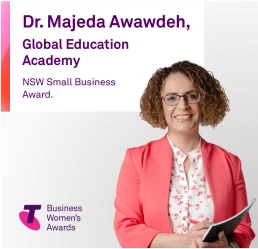
Parent teacher interviews are a fantastic opportunity to discuss your child’s progress, strengths and weaknesses with their teacher. Be prepared to ensure you get the most out of the short time you have in the interview. Below are our top 10 tips for parent teacher interviews.
Parents often ask what questions to ask their child’s teacher at Parent Teacher Interviews. The Common Grade Scale is the basis for reporting all student school academic performance and uses the Course Performance Descriptors which can be difficult to interpret at times.
Grade A
The student has an extensive knowledge and understanding of the content and can readily apply this knowledge. In addition, the student has achieved a very high level of competence in the processes and skills and can apply these skills to new situations.
Grade C
The student has a sound knowledge and understanding of the main areas of content and has achieved an adequate level of competence in the processes and skills.
Grade E
The student has an elementary knowledge and understanding in few areas of the content and has achieved very limited competence in some of the processes and skills.
So, if your child’s report says ‘sound’ knowledge it is a lower grade than ‘extensive’ knowledge.
Therefore, one tip is to ask to view the Common Grade Scale for subjects and analyse the descriptions of each grade your child has received. Then the question to the class teacher would need to focus on how your child can improve their writing or mathematics etc to move up to the next grade. For example, they may need to add more analysis, more reasons, more examples or statistics to their extended responses or short answers to improve.
It can be worthwhile to ask a class teacher if a child is happy and has friends in class. If your child is happy they will be motivated to learn and enjoy acquiring new knowledge. If they are anxious and worried about other children in class, they may find it difficult to focus on learning tasks and slip behind the class.
Quite often a child completes a pre-test and then sets a learning goal for the current unit of work. If a child has completed a pre-test, they should have it marked and their special needs or concerns identified. So, parents can ask the teacher if the child has made progress on their learning goal.
Children with special needs all require an individualized Education Program for all subjects at school. Parents can assist in achieving the goals in these programs by implementing consistent strategies at home to support the teacher eg chunking information into small bite sized parcels to reduce cognitive load and anxiety. Parents can ask if their child needs an IEP and how they can assist with this.
Children can benefit from Learning Practices such as asking Big Overarching Questions, Guided Inquiry skills for research tasks, how to use feedback, using Assessment For Learning eg identifying incorrect test answers to set new goals, or showing a sample perfect test response in eg Information Report format before the unit of work commences. Parents can then assist their child with these Learning Practices at home once they know what the specific problem is.
Each child has unique strengths and weaknesses. It is important to promote a growth mindset and offer stimulating growth and extension opportunities for each child. Also, some students require catch-up or remediation strategies if they have missed a learning concept. It is important to ask the teacher about these opportunities and assistance strategies so that additional help can be given at home.
Parents can assist children learning to read by:
This is often a slow process and requires the assistance of the teacher to know which phonemes the child is up to. Ask the teacher for a copy of the section of the program for teaching reading or use the story books provided to consolidate the reading already taught in class at school.
Parents need to support and praise their children so that learning is a positive experience. However, it is equally important to find out what their children’s needs or weaknesses are. Ask the teacher for a broad overview of the child’s rank in the class on English, Reading, General Ability and Mathematics. After identifying the weaknesses parents can address the reading fluency or accuracy or even address the particular mathematical skills vital for early development and therefore confidence in this subject.
Students complete homework if they understand concepts required. However, if they do not understand the concepts then they will become frustrated and not be able to complete it. Therefore, it is essential that students understand what is required, write it down in the same place in their planner or workbook daily, and establish a routine time and place to complete homework. Ask the teacher how much time each child should be spending on homework and allow that amount of time each night.
Often undiagnosed vision problems are the cause of poor progress in the classroom. Ask the teacher if your child offers answers to whiteboard based questions or if they squint to read the whiteboard.







